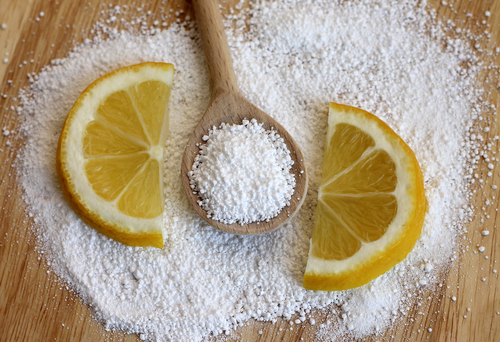
Citric acid
Citric acid is a natural acid which naturally occurs in citrus fruits, such as oranges, lemons, and berries. It is relatively weak acid and has a special sour taste. This acid is an integral part of the Krebs cycle and therefore plays an important role in the metabolism of all living organisms. For the first time the acid was produced from citrus fruits, but this method was inefficient because it produced only a small amount. Today, a special kind of moldy mildew is used in the industrial production of citric acid through a fermentation process. Acid can be found in both liquid form and powder (gel,) form and found easily in food stores.
Citric acid anhydrous is a colorless crystals or as white, crystalline powder with a strongly acidic taste. It is very soluble in water, freely soluble in ethanol (96 %) and sparingly soluble in ether.
Citric acid is the most widely used organic acid and pH-control agent in foods, beverages, pharmaceuticals and technical applications.
It is best to store citric acid in a cool and dry environment and prevent humidity and moisture from getting to it.
It is widely used in the food industry as an additive because of its low cost and ease of production. This acid has been declared harmless for consumption by all important food safety regulatory authorities.
By increasing acidity and reducing pH, the conditions prevent the growth of bacteria and fungi, thus prolonging the life of food or beverage.
note :
This acid is also commonly found in various skin care products. To adjust the pH level of the cream, lotion and gel, the pH is adjusted to the natural pH of our skin. When used topically on the skin, it acts as an antioxidant, which hides the signs of aging
Because it is a natural substance, it rarely causes allergic reactions and is suitable for all skin types.





